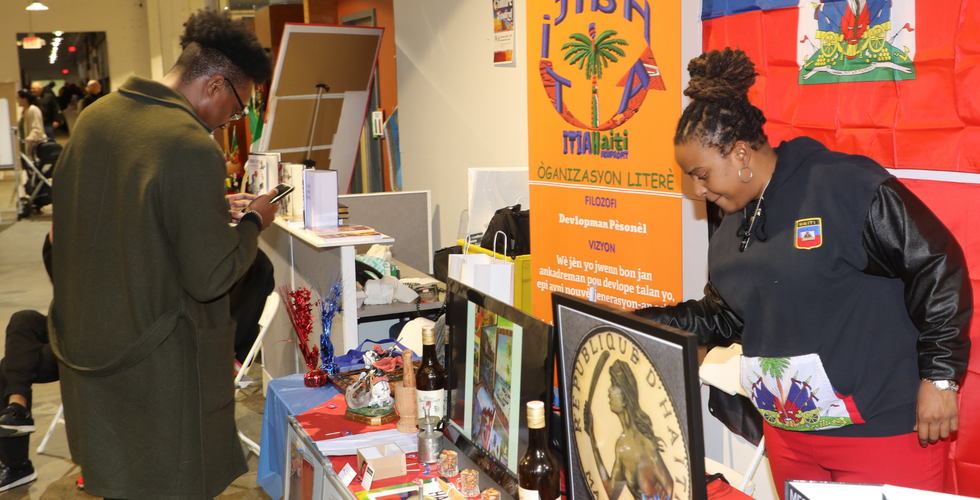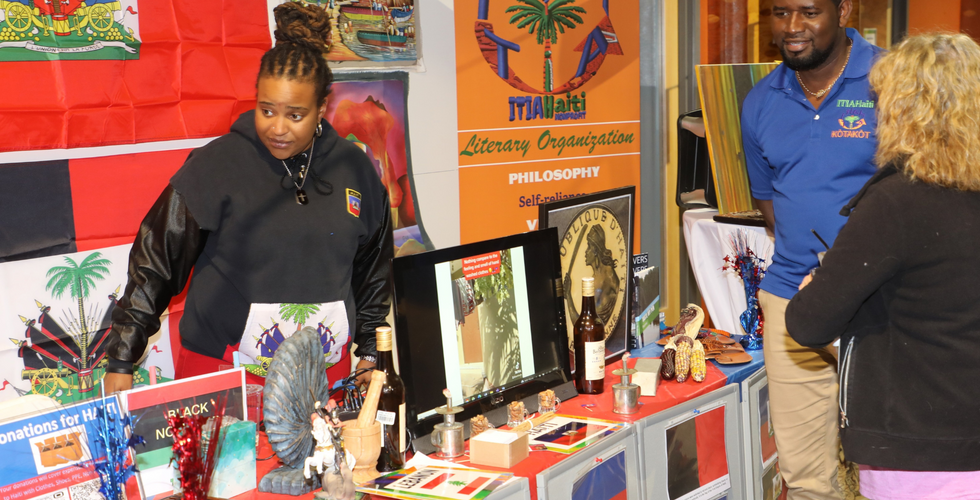The Arts and Culture Festival Was an Excellent Turnout for Haitian People in Norwood, Massachusetts.
- ITIAHaiti
- Oct 1, 2022
- 3 min read
Updated: Oct 6, 2022

The Haitian community is represented with pride and in Haitian fashion, as they have always been, bringing food, arts, and books in Haitian Creole, English, and French. In addition to historical flags, statues, and animation with Haitian music, they also promoted Haitian patties. The author Jean Senat Fleury, a former Haitian judge who authored 25 titles, summarized Haiti's history as the world's first black independent nation. Translator and linguist Emmanuel W. Vedrine decided to promote Haitian Creole at Norwood Library by translating some handouts. ITIAHaiti, a 501c3 literary organization based in Massachusetts, performed Creole poetry to sell the musicality of Haitian literature. Keisha Desir, the Black Norwood president, expressed her satisfaction:
"I can't wait until next year to see what we can bring to the arts and culture festival and what the Haitian people can bring to Norwood. Independence is critical, and we should all strive to have our own. It's our God-given right to have our own and pass down that independence to the next generation. Right now, Black Norwood is a virtual organization or community on Facebook. Hopefully, soon, we can take the steps and strides to legitimize this organization and have these conversations in person rather than online. What inspires me is just being Haitian.
I have a close connection to my Haitian culture, even though I've only been to Haiti once in my life when I was one year old. But growing up in a Haitian household, growing up connected to the Haitian culture, Haitian music, the discipline, and just the way of life that our people have is incomparable to any other culture, and I'm proud to say that I am Haitian, and NATIF NATAL! Regarding the feedback for participating in this event, I've heard great feedback. I hope we made Haiti proud and the Haitian people proud. I, for one, am proud of this whole setup and day. I'm pleased with the Haitian people as a culture, and I choose to take away the good things that Haitian people bring.
The vision is to educate the people on Haitian culture and to bring whatever positivity we can to do with Haitian culture. We want to get it back to life, educate the people and just have it exposed all over the country. It is a first-time event, and hopefully, it will be a yearly tradition. But even if Norwood doesn't have an event like this, we, as Black Norwood, will do what we can to keep this message and these events going. I honestly think it's more of a spiritual thing to connect with Haiti than anything. It's just an invisible tie that I have to Haitian culture. I grew up in a Haitian Household. My parents are from Haiti, and they made sure that I learned how to speak Creole.
I taught myself how to read and write Creole, and was through a Haitian church, holding and reading the Chants D'esperence. So much culture needs to be learned, and so much culture needs to be understood. I hope this generation can revive that culture because we have many young people living in the U.S with Haitian parents from Haiti who don't speak Creole, which is unfortunate. Our generation and the younger generation are not eating our food, not listening to our music, and not speaking our language, and that's how the culture dies. We must expose them to things like these to show them that they have a home place, Haiti.
I can say that I've been asked to translate certain documents. It helps when I ask for a raise and let them know I can communicate with Elders or other people in the community in Haitian Creole. That helps my salary to be bilingual, and it's just an added asset to my overall intelligence to speak another language. Haiti is a beautiful place, and there are a lot of rich cultures there. At least once in your life, I would highly suggest taking that trip and exploring Haitian culture. Touch the land and sand, eat the food, and talk to the locals at least once in your life. If you are an American Born Haitian, take that trip once in your life."
Wilson Thelimo Louis,
Interviewer and ITIAHaiti president.
October 1, 2022


















































































































